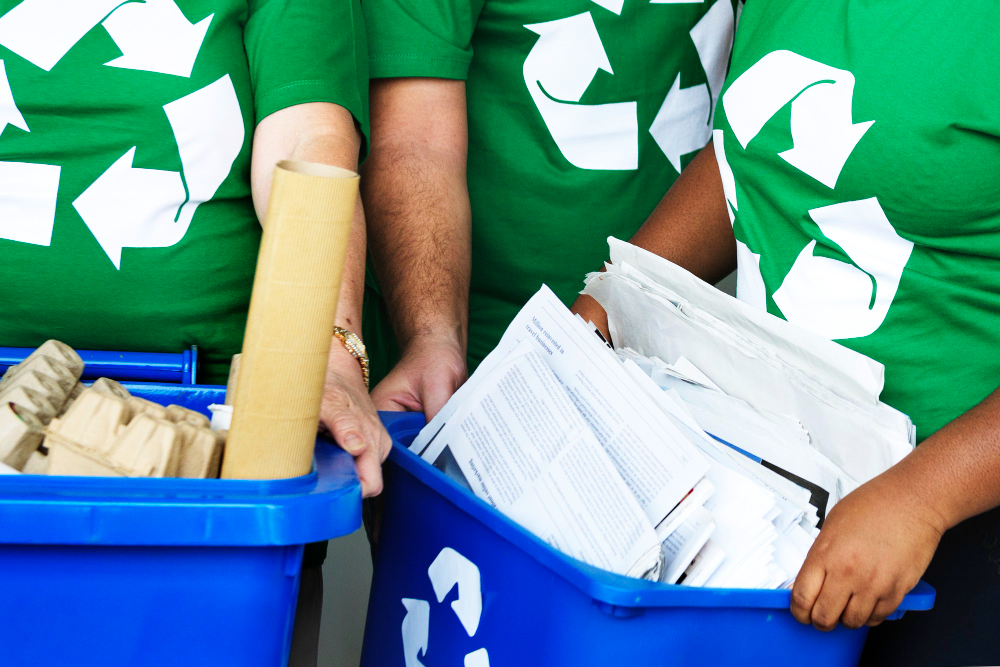
Every year, millions of tons of paper waste are produced, and thankfully, a significant portion of it can be recycled. Paper recycling in New Jersey not only reduces landfill waste but also helps conserve natural resources, reduce energy consumption, and minimize greenhouse gas emissions. But not all types of paper can be recycled, and knowing the difference is vital for an efficient recycling process. This guide will walk you through the various types of paper that can be recycled and provide tips to make recycling easier.
Whether you're an individual reducing waste at home or a business in New Jersey looking to streamline recycling processes, knowing what paper products belong in the recycling bin can make a big difference.
Before we discuss the different types of recyclable paper, it’s worth noting why recycling paper is so important.
Now that we’ve covered why recycling matters, let's explore the types of paper that typically belong in your recycling bin.
Examples: Printer paper, lined notebooks, sticky notes
Office paper is one of the most common types of paper waste and is highly recyclable. Both white and light-colored paper can be processed and made into new paper products. Just make sure to remove staples, paperclips, and any adhesive-bound materials before tossing them in the recycling bin.
Cardboard boxes from online shopping or food packaging are perfectly recyclable. Flatten them to save space in your recycling bin. Remove any packing materials, such as styrofoam or bubble wrap, as these are not recyclable with paper.
Old newspapers are highly valued in the recycling process because the fibers in newsprint break down easily during the recycling process. They’re often reused to create new paper products like egg cartons or insulation.
Glossy magazines and catalogs are recyclable as long as they don’t have plastic pages. Check the recycling guidelines in New Jersey to ensure these products are accepted in your area.
While junk mail might be a nuisance, it is recyclable. Envelopes, including those with plastic windows, can also be recycled because the plastic is usually separated during the recycling process.
Paperboard, commonly used for cereal and cracker boxes, is lightweight and typically recyclable. Make sure to remove any inner plastic linings or packaging before recycling.
Shredded paper is recyclable, but it requires special handling due to its small size. Place shredded paper in a paper bag before putting it in your recycling bin to prevent it from scattering during collection.
Shopping bags made of brown paper are a great recyclable material. They'll often be reused to create new bags or paperboard.
While recycling is critical, not all types of paper can be processed, which may lead to contamination of the recycling stream. Here are some examples of paper products you should avoid recycling:
Recycling regulations can vary by state and county. If you’re in New Jersey, consult with local recycling programs to ensure compliance.
Keep paper free from food, liquids, and non-paper materials. This helps preserve the quality of recyclable materials.
While shredding paper protects sensitive information, shredded paper can be challenging to process. Only shred paper when necessary, and collect it in a closed bag before recycling.
Some paper products, like glossy or coated paper, may have specific recycling restrictions. Check for recycling symbols or guidelines on the packaging.
If you’re in New Jersey and feeling overwhelmed by what paper products can and can't be recycled, All County Recycling is here to help. We specialize in environmentally friendly waste management solutions and can guide you in setting up an efficient recycling system for your home or business.
Contact All County Recycling today for a free consultation and ensure you’re recycling the right way. No matter the volume, we’re ready to help you make a positive impact.